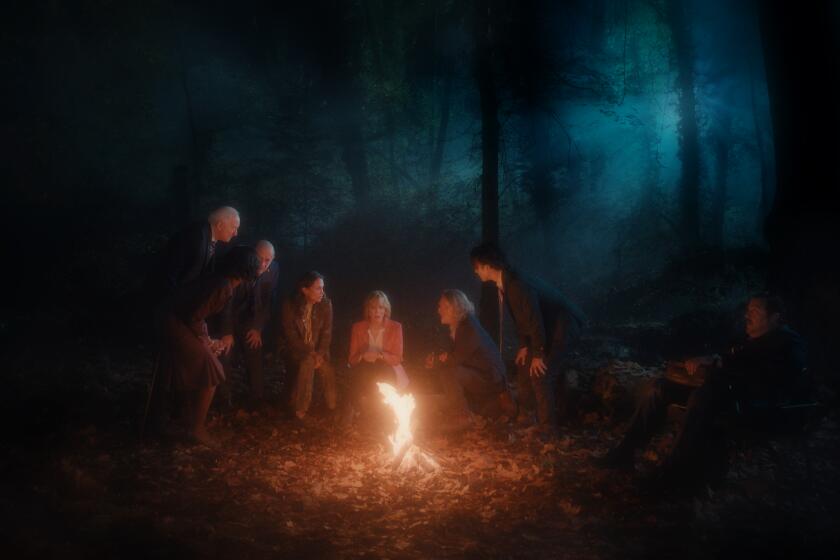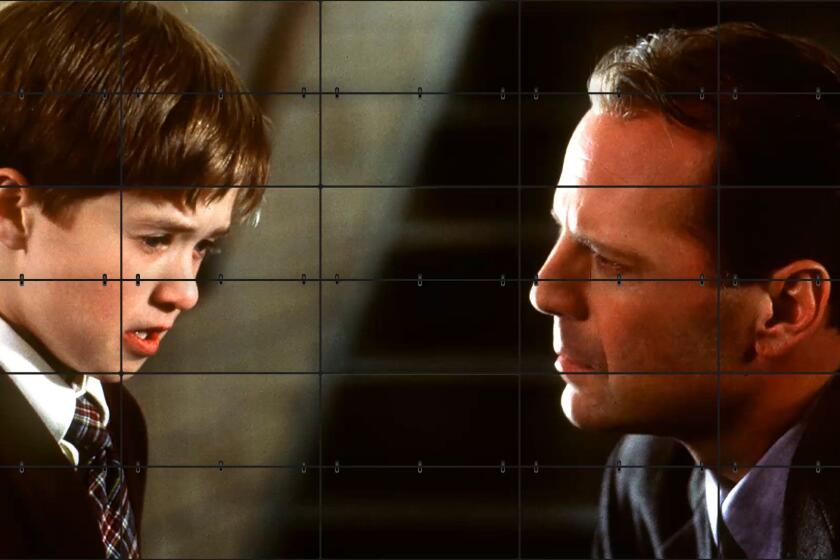MOVIE REVIEWS : ‘Brother’s Keeper’: Story of Caring : Film: The work is a compelling look at a community rallying around a man accused of killing his brother.
On June 6, 1990, Bill Ward, an ailing dairy farmer from the central New York State hamlet of Munnsville, was found dead in the bed he shared with his 59-year-old younger brother Delbert. What at first seemed like a case of death from natural causes soon became complicated. A confession by Delbert to the state police that he had suffocated Bill was later denied by him; he claimed police coerced him. There were suggestions brought up at Delbert’s subsequent trial of sexual involvement between the two brothers. Was Bill’s death a mercy killing, or a case of sex-gone-bad? Or, as many in Munnsville (population: 499) believed, was Delbert innocent altogether?
This is the subject of the documentary “Brother’s Keeper,” and it superficially resembles the kind of tabloid-shock stuff that often turns up on the true crime TV shows. It takes a little while before you realize that the filmmakers, Joe Berlinger and Bruce Sinofsky, are not out to shock you. Their movie (at the Nuart) isn’t about the luridness of the situation so much as it is about the community of caring that grew up around Delbert.
The irony is that, until Delbert was brought up on charges of second-degree murder, the townspeople had for the most part shunned him, as well as his two surviving brothers, Roscoe and Lyman. “The boys,” as they are called, lived together all their lives in a filthy two-room shack on their dairy farm. Uneducated, possibly simple-minded, they changed their clothes maybe once every six months--”except for funerals,” as a neighbor notes. It was only when the state authorities and city people and TV reporters, including Connie Chung, showed up that Munnsville embraced Delbert and his brothers: Within a day $10,000 in legal defense funds was raised. The Wards may have been outcasts, but, for the people in Munnsville, they became their outcasts.
Berlinger and Sinofsky must have realized going into this project that they had a “natural” movie subject. They provide a straightforward dramatic narrative but it doesn’t feel imposed upon the subject: The story seems to be bubbling up unaided from the very earth these farmers work. Even though the filmmakers’ sympathies lie with the Ward brothers, it’s a free-floating sympathy that allows for the fact that Delbert may indeed have been responsible for his brother’s death.
The Ward brothers are, at first glimpse, dismal camera subjects: Delbert, with his scared, unfocused gaze and thin-lipped grimace, is barely communicative; Lyman, with his fluffy-filthy beard, has the perpetual shakes; Roscoe, the most convivial of the trio, shows off the most energy biting off a wad of tobacco. Watching these guys puts you in the position of being instant voyeurs, but the filmmakers don’t deny the fascination. They don’t attempt to turn the brothers into shaggy Everymen--their weirdness is acknowledged and accepted.
Still, the filmmakers may have adopted too sane and folksy an approach to the material. They’re so interested in preserving an evenhanded tone that they skimp the story’s more disturbing and alienating undercurrents. Most of the film (Times-rated Mature for a hog-slaughtering scene) is taken up with the Wards and various neighbors and lawyers and friends speaking their mind straight into the camera, and the direct conversational approach doesn’t leave enough room for dramatic ambiguity, for the caught-on-the-sly open-endedness that might have illuminated this community when they didn’t know the cameras were running.
That ambiguity comes through best when Berlinger and Sinofsky are not trying to nail down family-of-man points but instead let the subject roam free. The shots of the boys trudging down the road in heavy fog are more eloquent than anything that anybody has to say. And there’s one great sequence during the trial when Lyman, under cross-examination, begins to crack and waver until the proceedings are stopped. The filmmakers blessedly don’t go in for the kill in this scene; they don’t bore in for a tight, suffering close-up. Lyman’s near-death fright is observed unwaveringly, and his struggle to survive becomes immensely poignant, even as it horrifies. It’s the sort of moment that can exist in its fullest power only in a documentary.
More to Read
Only good movies
Get the Indie Focus newsletter, Mark Olsen's weekly guide to the world of cinema.
You may occasionally receive promotional content from the Los Angeles Times.










